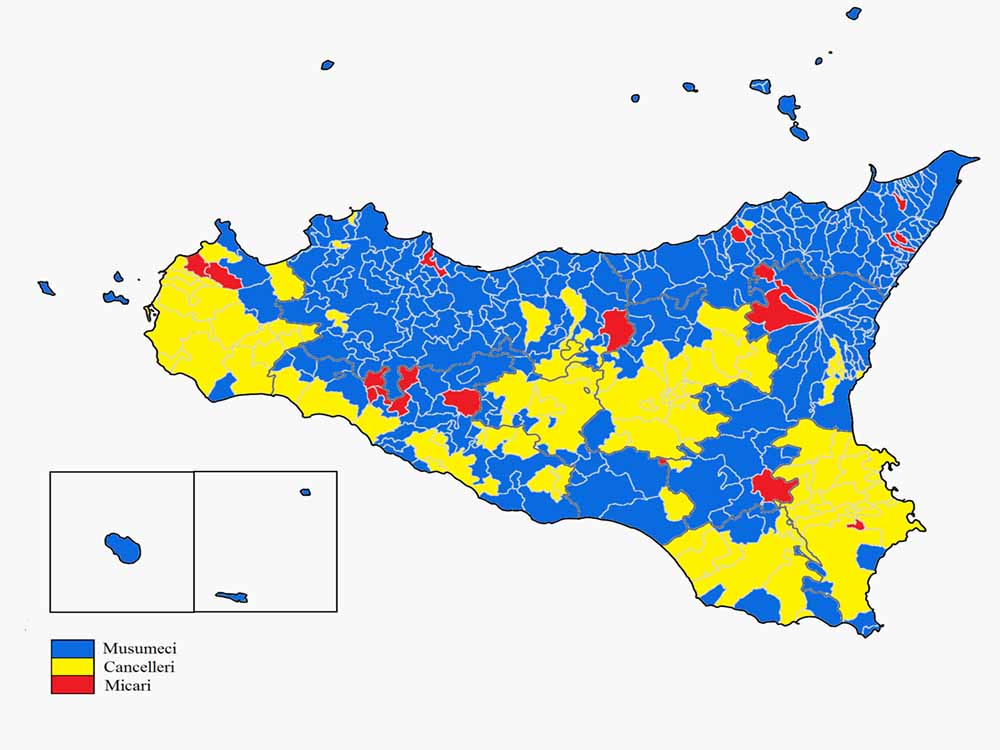Sicilian Regional Election 2017 – A Pivotal Contest in Italy’s South
The Sicilian regional election of 2017 was a significant political event in Italy’s southernmost region. This election held substantial importance for Sicily’s governance, as well as for the broader political landscape in Italy. It was characterized by intense competition among political parties, issues related to regional autonomy, and economic challenges facing the region.
Background and Context
Sicily, located in the heart of the Mediterranean, has historically been marked by a complex political and social landscape. It faces unique challenges, including organized crime, unemployment, and a struggling economy. The 2017 regional election took place in this context, against a backdrop of regional autonomy and economic development.
The outgoing president, Rosario Crocetta, had been in office since 2012 and represented the center-left Democratic Party (Partito Democratico or PD). However, the election featured a broad spectrum of political forces, including both national and regional parties.
Key Contenders and Campaign Issues
The 2017 Sicilian regional election saw several key contenders:
- Nello Musumeci (Center-right coalition): Musumeci, running as the candidate of the center-right coalition, sought to emphasize issues related to regional autonomy, economic development, and law and order.
- Fabrizio Micari (Center-left coalition): Micari, representing the center-left coalition, aimed to build on the work of the outgoing president Crocetta, focusing on social policies, anti-corruption measures, and support for small businesses.
- Giancarlo Cancelleri (Five Star Movement): The Five Star Movement, led by Cancelleri, presented itself as a viable alternative to the established parties, campaigning on issues of transparency, anti-corruption, and economic reforms.
- Other regional and national parties: Several other parties, both regional and national, also participated in the election, reflecting the diversity of political forces in Sicily.
Campaign issues revolved around economic development, job creation, combating organized crime, and addressing issues of regional autonomy. Sicily’s economic challenges and unemployment rates were central concerns for voters.
Nello Musumeci’s Victory and Regional Autonomy
The election results, announced on November 6, 2017, saw Nello Musumeci of the center-right coalition emerge as the winner with 39.85% of the vote. Fabrizio Micari of the center-left coalition came second with 34.71% of the vote, while Giancarlo Cancelleri of the Five Star Movement secured 18.68% of the vote.
Musumeci’s victory marked a shift in Sicilian regional politics, as the center-right took the helm. He focused on issues such as greater regional autonomy, economic reforms, and combating organized crime as key priorities for his administration.
Implications and Regional Challenges
The 2017 Sicilian regional election had implications not only for the governance of Sicily but also for the broader political landscape in Italy. It showcased the diversity of political forces at the regional level and the importance of regional issues in Italian politics.
Sicily’s unique challenges, including economic underdevelopment and the presence of organized crime, remained significant concerns for the regional administration. The election underscored the need for effective governance, economic reforms, and social policies to address these challenges.
In retrospect, the Sicilian regional election of 2017 was a pivotal moment in the region’s political history. It highlighted the complex dynamics of regional politics in Italy’s south, the role of regional autonomy in electoral campaigns, and the enduring importance of local issues in shaping regional governance. Sicily’s path forward would continue to be shaped by these challenges and opportunities in the years that followed.











